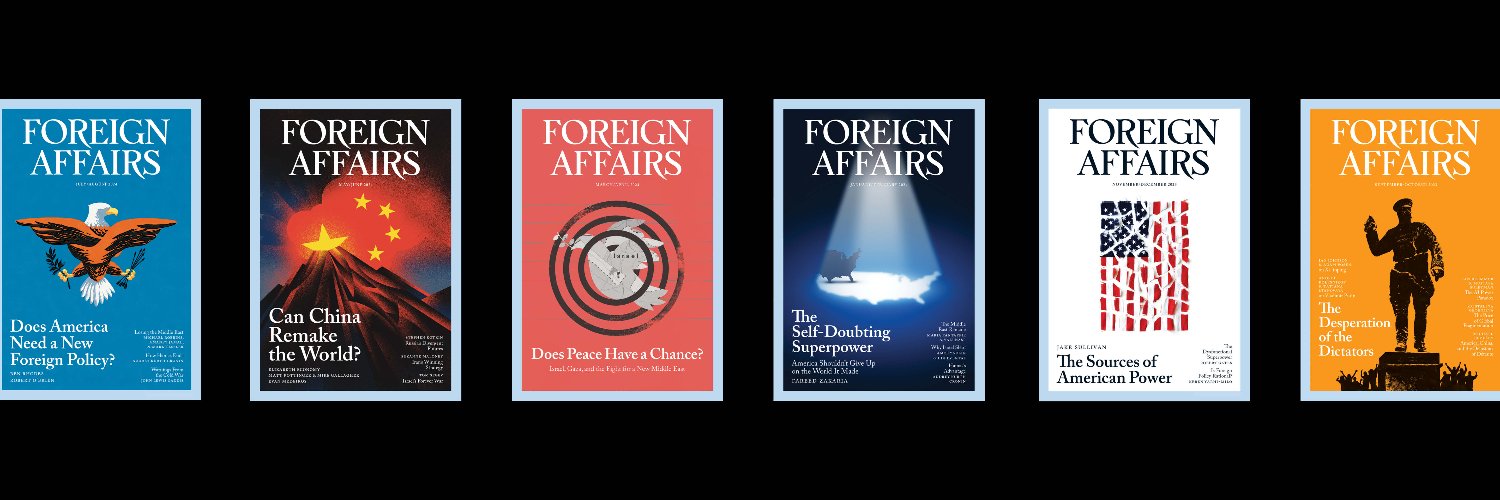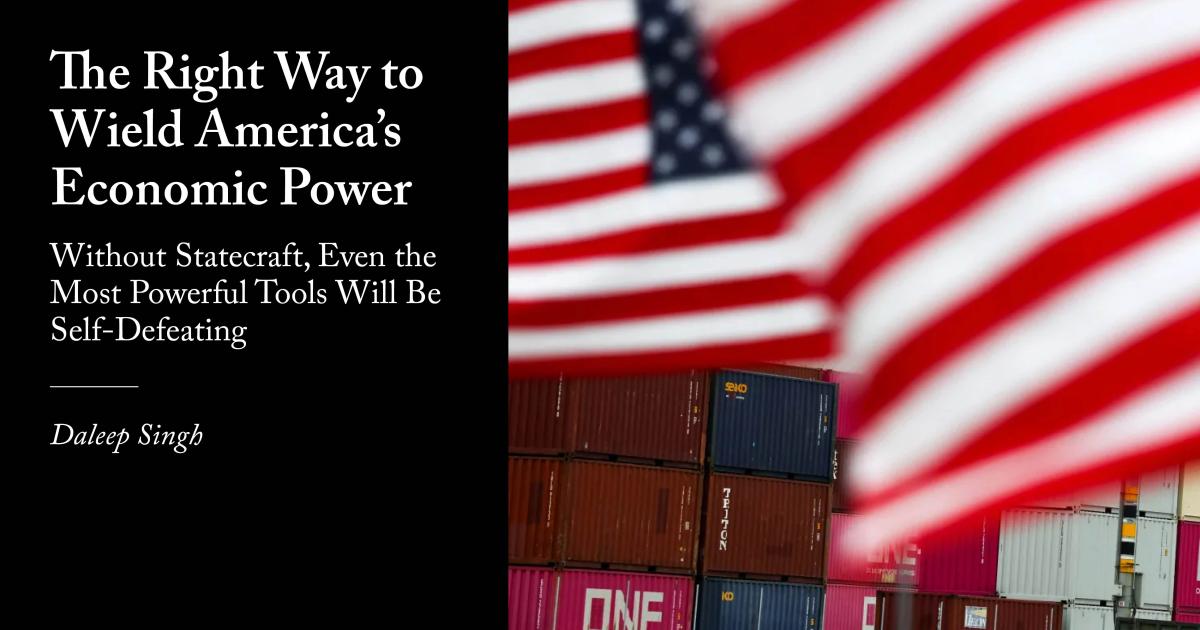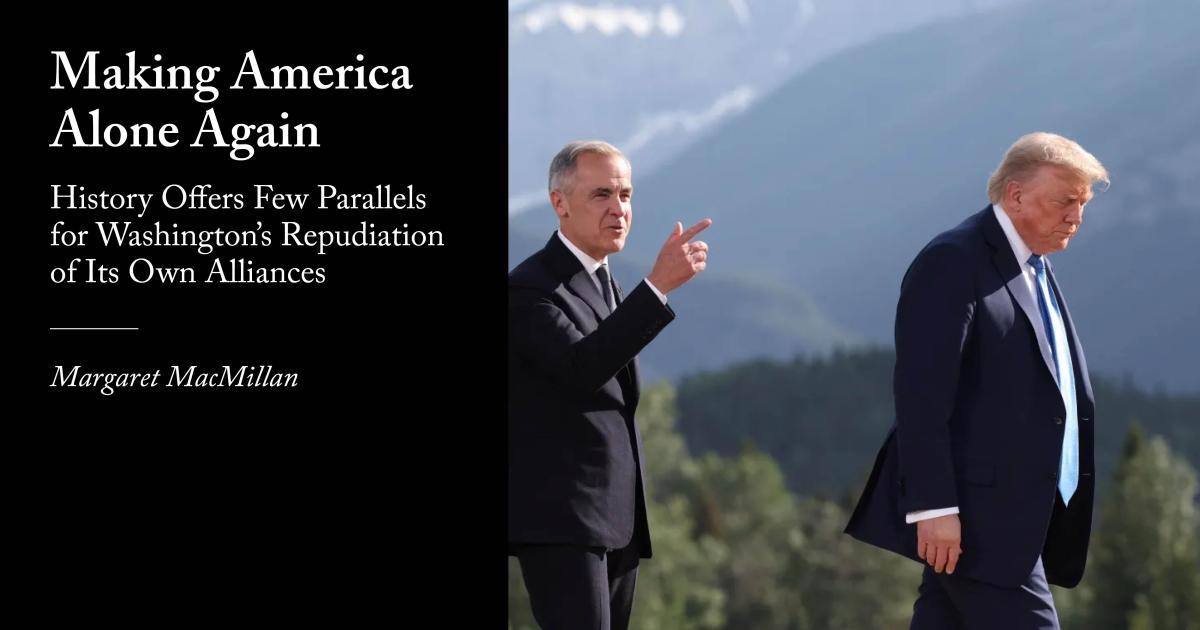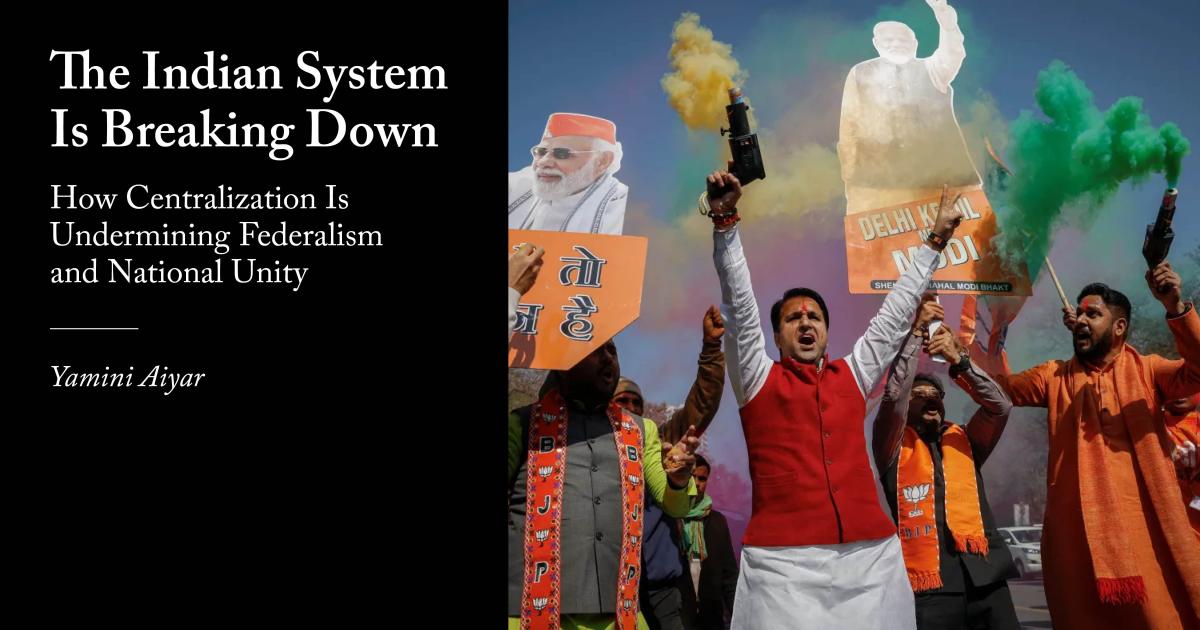
Foreign Affairs
@ForeignAffairs
A magazine of U.S. foreign policy and international affairs, founded in 1922. Sign up for our newsletters: http://foreignaffairs.com/newsletter
Our July/August 2025 issue is now available online. Start reading here: foreignaffairs.com/issues/2025/10…

After decades of refusing to choose between the United States and China, many Southeast Asian countries are now drifting toward Beijing, write Yuen Foong Khong and Joseph Chinyong Liow. What explains this shift? foreignaffairs.com/china/southeas…

Read @elerianm on the potential consequences of Trump’s approach to the economy—and how governments, companies, and investors around the world can “insure themselves against potential damage.” foreignaffairs.com/united-states/…

“If left improvisational, U.S. economic statecraft will not only erode its own credibility but also intensify global efforts to dilute American economic dominance,” writes Daleep Singh. foreignaffairs.com/north-america/…

“If necessary, Trump will bludgeon both friends and adversaries into submission, assuming they will abandon any opposition if the offer on the table is good enough or if Washington seems to hold the best hand. If only it were so simple.” foreignaffairs.com/united-states/…

Over the next decade, India’s federal politics are likely to become more fractious—weakening “the very glue that first bound the country together,” warns @AiyarYamini. foreignaffairs.com/india/indian-s…

“Trump is throwing away American soft power.” Listen to the latest episode of “The Foreign Affairs Interview,” featuring a conversation with international relations scholar Robert Keohane: foreignaffairs.com/podcasts/josep…

Tariffs alone will not solve the United States’ reliance on foreign sources for critical medicines, argue @Prof_Yadav_SCM, Chloe Searchinger, and @TomBollyky. foreignaffairs.com/united-states/…

“Countries in the Eurasian interior will continue to search for their own ways to reduce their historic reliance on Russia—but the United States and its partners should help tip them the scales.” foreignaffairs.com/russia/russia-…

As a state’s population ages, its tolerance and capacity for war decreases, writes Mark Haas. “The twenty-first century, widely predicted to be an ‘age of depopulation,’ may also turn out to be a more peaceful one.” foreignaffairs.com/world/coming-p…

“Planning for the impacts of artificial general intelligence on national security needs to start now.” Read Matan Chorev and Joel Predd on how the United States can prepare for a future with more “powerful, autonomous, and diffuse” AI: foreignaffairs.com/united-states/…

As populations age and shrink, societies around the world will become “less capable and tolerant of waging war,” writes Mark Haas. foreignaffairs.com/world/coming-p…

“Policymakers eager to protect the United States’ reputation and influence need to seriously consider the impact of its new major export, gun violence,” argues @Jacob_A_Ware. foreignaffairs.com/united-states/…

To be more than a hollow gesture, a renewed global push to recognize the state of Palestine must be accompanied by “real change on the ground,” argue Marc Lynch and @ShibleyTelhami. fam.ag/40fvbMU

On the latest episode of “The Foreign Affairs Interview,” Robert Keohane discusses the life and legacy of the late Joseph Nye—one of the true giants of American foreign policy: foreignaffairs.com/podcasts/josep…

“The United States needs bold action now to sustain the momentum already underway to realize a credible European self-defense, for its own sake and for Europe’s,” writes @CChivvis. foreignaffairs.com/united-states/…

“To be sure, the United States is not likely to be central to developments in the Eurasian interior. But it can and should encourage the European Union, Turkey, and other allies and partners to maintain an active presence in this part of the world.” foreignaffairs.com/russia/russia-…

To safeguard the U.S.-Indian relationship, India “must embrace delayed reciprocity, delivering tangible benefits without expecting short-term returns,” writes @MilanV. foreignaffairs.com/south-asia/how…

As the world depopulates, conflicts between states will become less likely, writes Mark Haas. “Although there are certainly exceptions, the tendency to fight wars is stronger in countries with younger populations.” fam.ag/44NEdmX

“Recognition cannot be an end unto itself. If many countries choose to recognize Palestine but fail to confront the reality of escalating Israeli domination of the occupied territories, recognition could prove seriously counterproductive.” foreignaffairs.com/palestinian-te…

.@boyd_vandijk discusses the International Criminal Court’s case against Israel, which focuses on the crime of starvation—and examines the persistent challenges in prosecuting starvation as a crime: foreignaffairs.com/israel/israel-…
